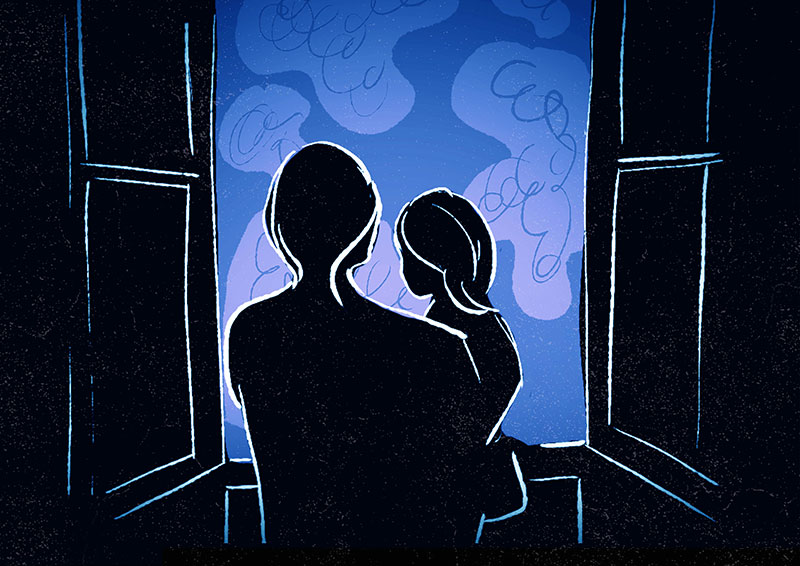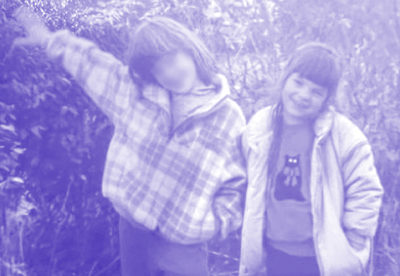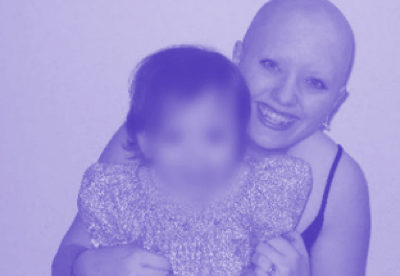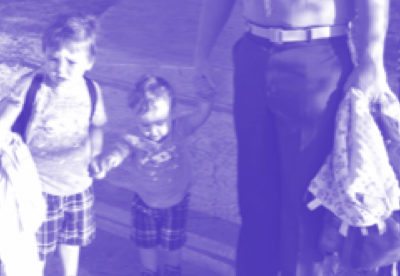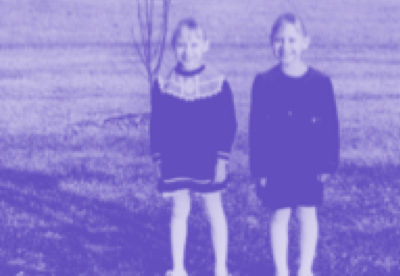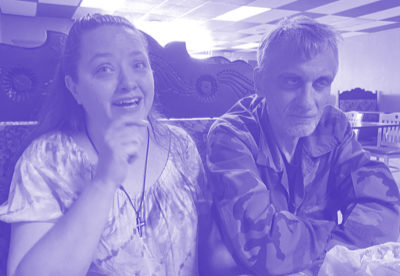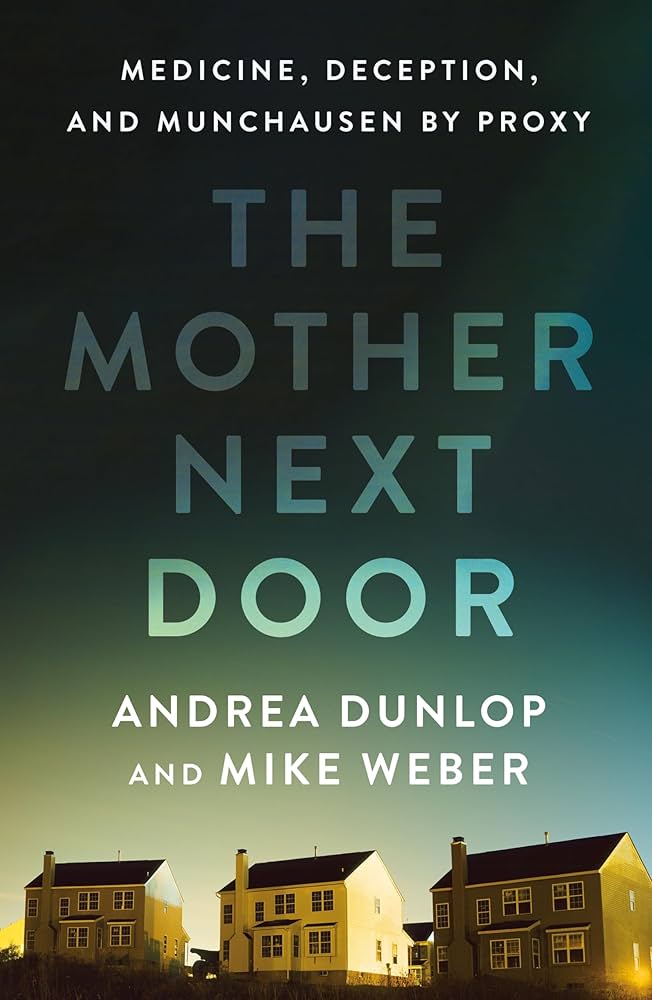SEASON 04 | EPISODE 08
Just as Jo has made huge personal strides in the spring of 2023, Donna slides into a coma and Jo returns to Hutchinson to say what they will believe to be their final goodbyes. However, even Donna’s “deathbed” isn’t what it seems, and she ends up pulling through: leaving Jo to manage the complicated process of setting boundaries with their mother after yet another dramatic brush with death.
Over the next year, Jo continues to thrive and heal their relationship with their sister: just in time for the two to receive a shocking phone call.
Host Andrea Dunlop:
https://www.andreadunlop.net
For behind-the-scenes photos:
https://www.instagram.com/andreadunlop/
Support the show and get exclusive bonus content:
https://patreon.com/NobodyShouldBelieveMe
For information and resources:
https://www.munchausensupport.com
The American Professional Society on the Abuse of Children’s MBP Practice Guidelines can be downloaded here.
More about Dr. Marc Feldman:
https://munchausen.com
Transcript
[00:00:00] Andrea: Before we begin, a quick warning that in this show, we discuss child abuse and this content may be difficult for some listeners. If you or anyone you know is a victim or survivor of medical child abuse, please go to munchausensupport. com to connect with professionals who can [00:00:20] help.
[00:00:22] Andrea: When you love someone like Joe’s mom, Donna, or my sister, Megan, it means that illness and death, either theirs or that of their children, are just sort of constantly hanging around like this unwelcome house guest.
[00:00:36] Andrea: There is this fear that I hear from listeners sometimes, [00:00:40] that their own anxious behaviors around illness or around their children will make them seem like they’re engaging in Munchausen behaviors. But what is hard to explain to people who haven’t experienced this is just how all consuming these behaviors actually are.
[00:00:54] Andrea: It’s an obsession that gets more intense over time, and much like an addiction, the [00:01:00] person has to keep upping the ante so that everythingthe lying, the illnesses, and the brushes with death get more extreme and more frequent. And with Megan, This escalation meant going through a different kind of death.
[00:01:14] Andrea: There’s this person that I remember from childhood. And yeah, looking back, especially talking to my [00:01:20] parents about their memories, the illness stuff, hers, her pets, that was always there too. But when I look back at us as kids, there was a whole person there, with hobbies and interests. And just other things about them other than this obsession with illness.
[00:01:38] Andrea: But that person disappeared [00:01:40] over time. It was like her obsession was devouring her from the inside. And by the end, the sister I said goodbye to 14 years ago, she was gone. She was a shell of the person I’d once known and now I have no idea and the person I’ve read about in the police reports about her daughter, the accounts I’ve listened to from [00:02:00] people who were there, I still have trouble reconciling that person with the person I grew up with.
[00:02:05] Andrea: One thing I know the Megan I loved, she’s gone. Today we’re talking about how complicated these losses are. What does it mean to lose a person who was never really there?
[00:02:17] Andrea: [00:02:20] People believe their That’s something that is so central to this topic because we do believe the people that we love when they’re telling us something.
[00:02:28] Andrea: If we didn’t, you could never make it through your day. I’m Andrea Dunlop and this is Nobody Should Believe Me.
[00:02:48] Andrea: If you’d like to support the show, the best way to do that is to subscribe on Apple Podcasts or on Patreon. where you can get all episodes early and ad free along with extended cuts and [00:03:00] deleted scenes from this season as well as two exclusive bonus episodes every month. If monetary support is not an option, rating and reviewing the show wherever you listen helps a great deal.
[00:03:13] Andrea: And if there’s someone you feel needs to hear this show, please do share it. Word of mouth is so important for [00:03:20] independent podcasts. For more, you can now find us on YouTube where we have all of our episodes as well as bonus video content.
[00:03:28] Andrea: After their television appearance on The Doctors, Joe had some fallout with their family members, including Crystal, who had mixed feelings about how Joe presented their childhood.
[00:03:36] Andrea: But by the spring of 2023, Joe was doing [00:03:40] great. They were a member of the APSAC committee, they were in school getting their degree in social work, and they were working for Munchausen Support. And just Overall, really moving forward. But this is the thing about having a Donna or a Megan in your life.
[00:03:54] Andrea: You’re always waiting for the other shoe to drop. The only guarantee if there isn’t any drama going on [00:04:00] right this second, there’s about to be. And as her children got some distance from her, Donna’s obsession with her own health took back. One day things took a turn.
[00:04:11] Jo: My mom had been in and out of the hospital.
[00:04:13] Jo: And even like after that, like she was still always in and out of the hospital. So I. I stopped really [00:04:20] paying attention. Anytime that I’ve talked to my mom, the first thing she tells me about is how sick she is and all of her hospitalizations and all these things going on with her. Um, that’s actually pretty much all that our conversations end up being.
[00:04:34] Jo: And then it’s like, Oh, how good are you doing? Like, how healthy are you? And stuff like that. But [00:04:40] then one day. I was driving to go do a tour thing for class and my sister called. And my sister never calls me. So I answered, and my sister said, things are actually, like, not good. [00:05:00] I wanted to, like, make sure, cause you know mom, how she’ll be in the hospital one day and then out the next, but she is currently in a coma.
[00:05:09] Jo: And they don’t think she’s gonna make it.
[00:05:12] Andrea: Now this wasn’t Donna’s first brush with death, or even her first coma. But still, talking to Crystal, to Joe, this time [00:05:20] felt different.
[00:05:20] Jo: Um, I just wanted to let you know in case you wanted to like, come say your goodbyes. And, I got off the phone and I was like, well I’m still gonna go do this school thing first, like I gotta get that done.
[00:05:31] Jo: And I pulled into the parking lot. And I just started having a full blown panic attack, and I think it just all hit me, and I was like, oh, I, I [00:05:40] can’t. And I decided that I was going to pack a bag and go say my goodbyes. You know, every time I saw my mom, I’ve seen her very few times, um, in, since 2016. And every time I saw her, because I thought she had always been dying, I [00:06:00] was like, this could be the last time.
[00:06:02] Jo: So anytime I left, I kind of left knowing that I might never see her again. And it was kind of weird. Literally two days prior to all of this, I had been telling someone like, I always think my mom’s dying, but I’m really realizing like, she’s not dying. Like she’s totally okay. And then two days later I [00:06:20] get this call and.
[00:06:21] Jo: My little magical thinking brain was like, this, you did this, you caused this, um, because it’s always my fault.
[00:06:29] Andrea: This programming that Jo is responsible for Donna’s well being rather than the other way around is a deep seated part of the abuse. Jo was trained from birth [00:06:40] that it was their job to give Donna what she needed, that it was their very reason for existing.
[00:06:52] Jo: And so I hopped in the car and I drove. I drove nine hours to Minnesota, and then [00:07:00] I drove, um, to the hospital, to the ICU, and I went in, and my mom was laying there in a coma, on a ventilator, and, Just seeing her like that brought me straight back to 2011. And in 2011, I [00:07:20] mean, things were really, really serious.
[00:07:21] Jo: We, we had sat down with the doctors and had like that conversation of like, we’re gonna pull the plug in a couple days. And when they did their rounds, they like told me when I was there this time, like they told me, you know, at some point we’re gonna have to like, sit down with you and your sister and talk about things ’cause things don’t look good.
[00:07:39] Jo: [00:07:40] Um. Ironically, they kept saying that my mom was the most complicated case in the hospital. And I kept saying, She would really like that, if she could hear that. Um, and so, she was still getting her wishes, I guess. But, they took all the meds and stuff off, and [00:08:00] she was still in a coma, and they couldn’t figure out why.
[00:08:03] Jo: And this went on for like, I want to say like a week, where they had no idea. up. They didn’t know if she would ever wake up. Um, but when I went in that first day, I, I didn’t know if I was, how much alone time I would get with my mom cause I didn’t know how much my sister would want to [00:08:20] be there. Cause I knew I wanted to be there every second of every day for as long as I could for all the visiting hours, which looking back just shows I think that I still have that desire to be with my mom and that I still just love her so much and was like, Brought back to that younger, younger me, like [00:08:40] little me, just wanting to be with my mom and hopefully help her feel better.
[00:08:44] Jo: Um, but so since I was there early, my sister wasn’t there yet. So I sat down and I grabbed my mom’s hand and I decided to say my final [00:09:00] goodbyes before that I thought like that might be my only chance before there would always be people in the room.
[00:09:10] Jo: Hi mom. It’s Jo. Your baby girl. I hope you can hear me. [00:09:20] Came all the way from St. Louis. There’s so much that I want to say. I wish you could see me. My hair’s gotten longer and it’s super curly. You would love that. But I keep thinking of you with my curly hair. Because [00:09:40] I know how much you loved when my hair was long and curly.
[00:09:45] Jo: They’re taking good care of you. I’m so sorry. I wish you had called me. I just want to see you one more time. Well, I see you. I want you to see me. I forgive you. [00:10:00] I’m sorry. I’m sorry that you were hurting so much. I forgive you. Okay? And I love you. So much. I just had to have boundaries of all. To take care of myself too, you know?[00:10:20]
[00:10:20] Jo: My life is really good, mom. But I still expect you to be sitting in that chair tomorrow. You have to. Just like last time. Can you hear me in there? Can you feel me? I’m mad at you for not saying goodbye. It wasn’t very nice [00:10:40] of you. I think after everything you owed me a goodbye.
[00:10:47] Jo: That
[00:10:52] Jo: was different than what I heard even just a few hours ago when I had listened to it.
[00:10:58] Andrea: When we went to Hutchinson earlier this year, [00:11:00] Joe and I sat down and listened to this tape together of them at their mom’s bedside and reflected on it.
[00:11:05] Jo: I definitely feel a lot more emotional and I can just like vividly like remember sitting there holding her hand and just like I said [00:11:20] in that moment I would have done anything for her to open her eyes.
[00:11:23] Jo: Um, and It was like back to that, like, feeling of like, Oh, if you like, get better, like, we can, we can have a relationship again, and things will be okay, and I could move to Minnesota, like, I’ll quit school, I’ll quit everything, like, [00:11:40] I just want my mom. Um, and I just like, all, I mean, in that all I wanted was for her to be proud of me.
[00:11:49] Jo: Like, I kept naming things. I mean, I wasn’t even actually in cheer anymore, and I still told her I was going to nationals for cheer and tumbling and stuff, like, even though, like, I wasn’t at that [00:12:00] point. Um, because I was hoping, if she did pass, that she would hear me and that at least, like, she could die happy.
[00:12:11] Jo: Even after everything, all I seem to want is for her to find happiness. And I know she [00:12:20] finds a lot of pleasure in like being able to say how well I’m doing now, which is very odd cause it’s kind of the opposite of my whole life experience. But she loves to tell people that I was a cheerleader and that I was in school and how well I was doing in [00:12:40] school and that I had a job and all these things like she loved to talk about that stuff to people and um, I know, like, whenever I called her, she would get really happy.
[00:12:51] Jo: It’s back and forth. Um, sometimes she would act like I quite literally didn’t exist and would be like, Who are [00:13:00] you? Um, because she was angry at me for having boundaries with her. Um, but on the other times when she wasn’t doing that, She, like, you could tell how happy it made her. Well, what I thought. I mean, it got me to keep calling her, right?
[00:13:14] Jo: So, who really knows? But I still just wanted her happy, and I [00:13:20] hoped that, like, her knowing I was there would make her, make her happy. And, yeah, I didn’t know. I thought, like I said, that that would be the last. The last time that I ever, ever talked to her again, or the last time she could possibly maybe even hear me.
[00:13:50] Andrea: On the one hand, Joe was well aware of their mother’s medical deception by this time in their life. And on the other, you can’t really fake being in a coma. [00:14:00] And it wasn’t Joe’s mom telling them that she was dying, it was the nurses and the doctors observing her who were telling Joe how unlikely it was that Donna would pull through.
[00:14:10] Andrea: However,
[00:14:12] Jo: She did come out of it, though. Um, and I spent the two weeks that I was there, I was there 12 hours a [00:14:20] day, every single day. Uh, I would step out of the room to grab food, and then I would be back in that room. I did my therapy sessions in the room with my mom, and I, Would only leave if the nurses like told me like you need to step out for a minute or something like that but [00:14:40] otherwise I was I was there with her and she started to be able to move her hands a little bit and started to respond a little and Eventually, she did wake up and she came out of it She was very delirious.
[00:14:59] Jo: Um, [00:15:00] they say that’s really common when someone’s been in the ICU. They like, literally, I think they call it like ICU deliriums. But that time that I had with my mom, even once they took her off the ventilator was the best time that I’d ever have experienced her, which was similar, right? To 2011 [00:15:20] where I sat with her and would read the Bible and would be like, Uh, brush her hair and would just like take care of her.
[00:15:27] Jo: Um, that was like the same thing now where when she came off the ventilator, sometimes she didn’t quite know who I was. Most of the time she did. When I would say like, do you know who I am? She would say, yeah, JoJo. [00:15:40] Um, she always called me JoJo through that time. And she, she didn’t know her own name. If I asked her who she was, half the time she would say she was Jesus.
[00:15:49] Jo: She So, she was very out of it and um, but we had like such pleasant conversations because of that. Like, multiple times a nurse would be like, you’re my favorite [00:16:00] patient tonight. Like, you’re really making my night Donna. And I was like, Okay, we need to get her out of this ICU before she comes back to herself, because like these people are seeing this side of her that isn’t real.
[00:16:12] Jo: And I was like, they’re so nice to her and stuff. And so I was like, we need to get her out. And thankfully she did leave the [00:16:20] ICU that time before they like, saw her. And just who was
[00:16:26] Andrea: Donna? I like to believe that no person is defined by their worst moments. Even those who commit horrible acts of harm as Donna did.
[00:16:38] Andrea: But when you know that someone [00:16:40] is capable of torturing their own children, even if that’s not all they are, what do you even make of the rest of them? If someone has such a profound lack of empathy, how do you measure anything good about them against that? How do you frame any act of kindness? Is it just that, an act?[00:17:00]
[00:17:00] Andrea: Or is there some part of them that is good? Is there some internal struggle that none of us quite understand? Jo’s sister Crystal talks about how, as the years wore on, Donna’s behavior eventually alienated everyone around her.
[00:17:14] Crystal: I think she’s so lonely, especially now. She’s so lonely because she’s lost all of her friends [00:17:20] because she treats everybody the same and so nobody other than grandma really wants to go there.
[00:17:27] Crystal: She’s sort of putting in some effort right now. I think there’s some underlying thing So like obviously you take everything with like that pound of sand instead of that grain of sand or just salt whatever you’re just like [00:17:40] I know there’s got to be an ulterior motive.
[00:17:41] Jo: Yeah,
[00:17:42] Crystal: but If she’s not asking for a favor, then I’ll try to be at least respectful just because I mean, I guess if she wasn’t family, I wouldn’t talk to her ever because there’s no need.
[00:17:54] Crystal: Um, and I don’t hope for any relationship with her. Like, I don’t have any hope that one day we’ll [00:18:00] rekindle and we’ll be close again. Like, you know, like,
[00:18:04] Jo: It wasn’t
[00:18:04] Crystal: always that way.
[00:18:07] Jo: Even in, like, my early, early years, I remember, like, there was, like, good mom and bad mom. Yeah. Um, and good mom was fun. We would get McDonald’s, and, like, do lotion on each other’s backs, and do, like, little games and [00:18:20] stuff, and then, then there’d be bad mom, and you’d hide in your room.
[00:18:24] Crystal: Yeah. Yeah. So, yeah, it’s, like, It’s weird.
[00:18:31] Andrea: I’ve been estranged from my sister Megan for 14 years now, and my relationship with her absence continues to shift. [00:18:40] For the first few years, it seemed impossible that this rift could be permanent. I wrote her a sad letter not long after we became estranged, about how I loved her so much, but I couldn’t pretend anymore that nothing was wrong.
[00:18:55] Andrea: I told her I’d always be there and that I’d hope she’d be there on my wedding day and when I [00:19:00] had my first baby, as I’d been right next to her in those moments in her life. And I spent those years waiting for a call that never came. In the years after that, I began to think of her as dead. There was a sister I’d grown up with that I loved, and that person that [00:19:20] lived in my memory, good Megan, much like Joe’s good mom, was simply gone.
[00:19:25] Andrea: And the person who’d taken her place just wasn’t Megan anymore. And in the years since I’ve learned the details of the second investigation into her, and especially as I’ve been working on this show, my understanding of her has undergone another [00:19:40] shift. Increasingly, I expect that good Megan
[00:19:47] Andrea: It’s the part of her that I wanted to see, that she wanted me to see. And now I wonder if it wasn’t always a mask, and the mask over time just got harder to maintain. So maybe it’s not that Megan is [00:20:00] gone, it’s just that she was never there. When Jo was in the hospital with their mom as she recovered from the coma that was expected to end her life, Joe knew it was only a matter of time until the mask, this one maintained through actual delirium, slipped off.
[00:20:17] Andrea: And when Donna’s delirium broke, so did [00:20:20] Joe’s.
[00:20:21] Jo: I knew she was supposed to be in the hospital for months. Um, they say for every day you’re in the ICU, you’ll probably be in the hospital for like, I think it’s like a week or something. And she was in the ICU for two weeks. Um, When I left, she couldn’t walk.
[00:20:36] Jo: She could barely move. She couldn’t have any sort of fluids or [00:20:40] anything like that. So they assumed she would be there for quite a while. Um, once she came out of the delirium, she had other plans for herself. So she left, but, uh, against medical advice. But when I thought she was going to be there for a lot longer, [00:21:00] I had told myself, you know, I’ll stay here until either she passes away We know she’s going to be leaving the ICU.
[00:21:06] Jo: So I knew it was time for me to leave. I knew I needed to get back to school. There was a lot of projects I needed to do for school. And like, I needed to get back to my life and saying bye to her that day when she like, [00:21:20] didn’t really even recognize me was so hard because I knew like walking out that door, like I spent 12 hours a day for two weeks with her.
[00:21:29] Jo: And I. I guarantee my sister didn’t tell her that I was there all that time and she won’t have any memory of it. You know, she still will see me as this person [00:21:40] who doesn’t care about her even though, like, I took care of her during that time and like all I’ve ever tried to do is take care of her. Oh my gosh, I walked out that day and I just started sobbing in my car and like I was so close to just walking back in to like telling my school like, hey, I can’t come back.
[00:21:58] Jo: I have to stay here [00:22:00] and just dropping, just giving up all, all the things I’ve done in my life so that I could like help her and take care of her and be there for her. Um, and the first week after I left was the hardest week. I remember I just kept having nightmares all [00:22:20] night and I like would just toss and turn and I would feel so bad because I was now nine hours away.
[00:22:25] Jo: What if things turn? Like I wasn’t getting constant text messages and stuff like that where like before I was physically with her the whole day. Like I was the one seeing everything happen and now I just had to trust that people were going to keep me [00:22:40] up to date and let me know what was going on and you know, It really, it was really hard, but now I’m to the point where I haven’t talked to her
[00:22:51] Andrea: since.
[00:22:53] Andrea: Something really changed for Jo when Donna went into, and then came out of, this coma a year ago. [00:23:00] Donna didn’t die, but some piece of the illusion that lived in Jo did. Jo understood that as long as Donna was alive, she’d be constantly trying to pull them back in. After the coma, Donna didn’t change at all, and anyone still in her orbit was going to be subject to constant drama.[00:23:20]
[00:23:20] Jo: She called because her med box at this point was locked because she had home health aid. And she called them to have them come open it, and they were like, we don’t have a doctor’s order. So they called the facility she had been at, and they were like, oh. We didn’t know she left. So that’s kind of like where she was at.
[00:23:38] Jo: And then every few days [00:23:40] she would overdose on, we assume probably these same meds and she would be found unresponsive and taken to the hospital. They would go through their thing again. She would get out, she would do it again. It was just kind of this like ongoing thing. A cop literally watched her. She was sitting in her chair when he first got there.
[00:23:59] Jo: He watched [00:24:00] her like slide out of her chair and crawl out of his view. And then by the time he like did get in, cause he was waiting for the house key for someone to bring it by the time he got in, then they found her unresponsive again, but she was really off.
[00:24:15] Andrea: Off the walls. The time with Donna in the hospital had given Joe [00:24:20] unprecedented clarity about their mother, while looking for answers about what had led to their mom’s hospitalization.
[00:24:26] Andrea: Joe had gone through Donna’s phone and found dozens of text messages containing layers and layers of additional half truths and deceptions. Some to family members and some to names. Joe didn’t even recognize. I
[00:24:39] Jo: had found all [00:24:40] these texts that she had been sending, so I had really realized like she had never been as fragile as I had seen her for all these years.
[00:24:47] Jo: And so those two things combined, I knew that like, it wouldn’t be worth it for me to call her or to try to have any relationship with her. And at the end of the day, I want my [00:25:00] memory of her, I just want my memory to be what it was in the hospital. That was the most pleasant time that I’ve ever had. And like, those are the memories that I want to stick.
[00:25:13] Andrea: Crystal and Joe’s relationship was in a tough spot a year ago when this coma incident happened. And one of [00:25:20] the very best things that has come out of making this season with Joe is that during our visit to Hutch, As you heard, Crystal and Joe got a chance to hash things out, and their relationship has taken a dramatic turn for the better since then.
[00:25:33] Andrea: They’ve been talking much more frequently, and when Joe started a brand new job earlier this year, they texted me a photo [00:25:40] of the gorgeous bouquet of flowers that Crystal had sent to congratulate them. And given what was about to happen, the timing of the reconciliation could not have been better.
[00:25:59] Andrea: So [00:26:00] here’s where I pull back the curtain a bit, and tell you how we had planned to structure the arc of this season. I had this all in my head at the beginning. We would start off with this dramatic moment of Joe at Donna’s deathbed, only to reveal that Donna had survived, and that the deathbed, was just another illusion.
[00:26:18] Andrea: Another example [00:26:20] of how you can’t even believe your own eyes when it comes to someone like her. I saw this ending on a triumphant note, Joe thriving, moving forward in their new job and their new life. And we would sit down with Joe and have a conversation about what justice looked like for someone like their mom, and how they plan to navigate their new life.
[00:26:39] Andrea: [00:26:40] relationship of their life going forward. But in the spring, just as we were getting into the meat of making this season, something happened. I
[00:26:51] Jo: was just living my life. I was five days from graduating. Um, and walking across the stage with my [00:27:00] cohort, I was about to move into a new apartment where I was going to get to have an office and all this great stuff.
[00:27:07] Jo: Me and my roommate just got a cat, um, just a lot of really, really good things. I just started a full time job with an organization that I love. And then on April [00:27:20] 26th, I was actually in orientation for the For that new job with all of my new coworkers and I got a phone call from my sister. Like, we only call each other if something’s wrong with mom.
[00:27:36] Jo: Something’s happening with mom. Um, so when I [00:27:40] got this call, I knew something was not right, of course. Um, and I ran out of the room, um, and I answered the phone and my sister. My sister said that, um, she’s gone.[00:28:00]
[00:28:03] Andrea: In April of 2024, Donna was found dead in her home at the age of 62. After decades of alternately playing Russian roulette and or make believe with her health, this time there was no sleight of hand. Donna was gone. [00:28:20] Joe and I talked on the phone right after it happened. And the news honestly shocked me.
[00:28:25] Andrea: Donna’s smoking, alcoholism, and general disregard for her health, despite her obsession with it, made death at a young age more likely than not. But still, I was just kind of in disbelief. [00:28:40] In my imagination, after hearing Joe talk about her for all of these years, Donna had begun to seem kind of unkillable.
[00:28:48] Andrea: Like she would just go on having crisis after crisis for decades to come. Donna was never as frail as she appeared, but in the end, all humans are fragile, and Donna’s body finally [00:29:00] succumbed. I find it hard, even months later, to articulate how I feel about Donna’s death, both as Joe’s friend and as the person they’ve trusted to help tell their story on this show.
[00:29:11] Andrea: I don’t feel sorry she’s gone. It would be disingenuous of me to say that I did, but I feel sad at the way that she went. No matter what she did in [00:29:20] this life, she was still a person. And to die alone on the floor of a filthy apartment is a horrible end. Mostly, I feel sad for what Joe has to go through because I knew this was going to hit them hard.
[00:29:34] Andrea: Also, I feel pissed at Donna. It just feels so fitting [00:29:40] that Donna would take one last opportunity to screw up Joe’s life. That just as they were about to walk in their graduation, starting a new job, taking all these big steps forward. It feels like Donna took one last big swipe at Joe.
[00:29:58] Andrea: There’s no indication that [00:30:00] Donna’s death was intentional, unless you count the decades of abuse she put her body through, but I couldn’t help feeling like she’d done it on purpose. And I’m mad about that. This was also unsettling for me because, as you’ll know if you’re a longtime listener, this isn’t the first time a perpetrator has died during production.
[00:30:17] Andrea: Brittany Phillips died of an apparent [00:30:20] overdose at age 38 while I was making season two. So if one death is a coincidence and three is a trend, then two is Somewhere in between those two things, just spooky. Joe and I kept in close touch in the days following Donna’s death. And they did a location share on their phone so that I could [00:30:40] track their progress on the way back to their hometown.
[00:30:42] Andrea: And I followed the little green glowing dot on the map long into the night.
[00:30:51] Jo: But I hopped in the car at like 5 PM and drove straight to Minnesota. [00:31:00]
[00:31:00] Andrea: How long had it been since you’d talked to your mom before this April?
[00:31:10] Jo: Uh, the last time I spoke with my mom was, I believe it was on her birthday, November 10th. [00:31:20] Um, I think I might’ve talked to her one other time on the phone, but that’s like, very Fuzzy, like, I don’t really remember that.
[00:31:27] Jo: The last conversation I remember is, um, I texted her happy birthday and then she had like texted me saying how she knew I was coming to Minnesota because I was actually [00:31:40] in Minnesota at that time for a Kesha concert, um, and she had texted me saying how she wanted to see me. How she’s just my mother is all, um, and I had said like, I couldn’t see her and she was like, I guess I’ll have to wait.
[00:31:56] Jo: And it was like a really weird text conversation, [00:32:00] but that was the last time that we spoke.
[00:32:03] Andrea: We talked the day you found out and to say the timing of it felt strange, I think is like an understatement. It felt like a big. Plot twist, to say the least. And, you know, here we’d been [00:32:20] sort of following your life so closely and your mom sort of has had all of these brushes with death or supposed brushes with death.
[00:32:33] Andrea: We’re never sure which one. That initial shock must have been really extreme and sort of [00:32:40] that, I’d imagine there was just like a lot of disbelief.
[00:32:44] Jo: So a week prior, actually, I had gotten a phone call from Hutchinson and whenever I get calls from Hutchinson, I always am like terrified that my mom’s dead.
[00:32:54] Jo: Um, I never really realized how much my [00:33:00] fear of my mom’s death was. Has been like a daily thing that I’ve struggled with my whole life. Um, it’s always seemed like it would be the worst possible thing that could ever happen in the world. Um, yeah, it used to be like, I would hear a thunderstorm and I would call my mom until she answered.
[00:33:15] Jo: Cause I would think she was dead or I’d hear a siren and I’d call my mom until she answered [00:33:20] cause I think she was dead. Um, and things like that. And it’s gotten a little bit better, but I still always like, I’ll see a spider and be convinced that it’s a sign that
[00:33:29] Andrea: my mom’s
[00:33:29] Jo: dead.
[00:33:30] Andrea: So yeah, what is actually the connection between like thunderstorms or sirens?
[00:33:34] Andrea: Is it just kind of anything that makes you feel alarmed? Do you think it’s like a sign or you like, is it [00:33:40] triggering some memory that you know of or what’s the connection there? Yeah,
[00:33:43] Jo: definitely a memory. When I was younger, um, My mom said she was going to the grocery store, and I had to have been pretty young, under the age of 10, and she left, and then there was a really bad thunderstorm, and I’ve always been kind of afraid of storms, but [00:34:00] my brain has also always been Just spirals.
[00:34:03] Jo: So I was convinced that she was dead cause she was, it was hours that she was at the grocery store that was a block away. So I started trying to call her and call her and call her and call her and she didn’t answer and then when she got home um, she yelled at me for calling her so much [00:34:20] and for being scared.
[00:34:21] Jo: But ever since then, any time that I would hear thunder I would repeat that same thing. It started to get a little bit better or sometimes I’d like star six seven call at least because I knew that like I needed her voice, but I knew I didn’t want her to know it was me. And then that’s the same as sirens.
[00:34:39] Jo: Um, [00:34:40] when I was, I mean, obviously hospitals were like really big and always a thing, but when I was a teenager, my mom, was supposed to be coming to pick me and my friends up from my dad’s house. And, um, I got a call from the paramedics that my mom had been in a bad car accident. [00:35:00] Um, and then we like drove past and you could hear the sirens and like see her car and everything.
[00:35:07] Jo: Um, so I think that That’s like more of whatever, what I think of when I think of the sirens, but also there was always ambulances and stuff around our place too. But so a week before [00:35:20] my mom passed, um, I had gotten a call from Hutchinson and I was really scared and I answered the phone and it was, the Hutch Hospital and it was a nurse calling and she asked if I could come and pick my mother up.
[00:35:33] Jo: I live in St. Louis, like, no I cannot. Um, and then [00:35:40] she, so then I like called my sister and like talked to her and my, none of us, nobody knew she was in the hospital, nobody knew why, nobody knew like what was going on or anything.
[00:35:52] Andrea: So you arrive there, you go and see your mom at the funeral home and then you connect with.
[00:35:58] Andrea: Crystal at some point while you’re [00:36:00] there.
[00:36:00] Jo: Yeah, we texted the whole time. I think that we both needed a few days To just kind of like Breathe a little bit and you know, we had to figure out the funeral stuff on our own and I think my sister [00:36:20] obviously still Caesar’s is like the older sister. So I think she didn’t want to put stuff on me or didn’t want to like ask for help or things like that.
[00:36:29] Jo: So she tried to take on as much as she could with the funeral stuff. I would have to like, no, let me help. We’re sisters, like we’re in this together. [00:36:40] We met up for the funeral home thing. It was me, my sister, Tyler, her husband and my grandma. I, like, can’t get the images out of my head.
[00:36:53] Andrea: I’m in my 40s, and a number of my closest friends have lost parents over the last few years.
[00:36:58] Andrea: It’s always [00:37:00] hard. Even if the death was following a long illness, it still feels like an unbelievable shock, and it’s hard to accept that they’re gone. My parents are, mercifully, in very good health, but they’re also in their 70s. It’s a time of life when you have to accept that it could happen, even as it still feels way too soon to even [00:37:20] contemplate.
[00:37:20] Andrea: I’m terrified of my parents death, as I think many of us are, but it’s especially hard because I know that I’ll have to face it alone, without Megan. Which, even though it’s been 14 years since I’ve spoken to her, still hits me. And I also think about it with my niece and nephew. What if they never get the chance to meet [00:37:40] my parents?
[00:37:41] Andrea: What if there’s no opportunity to make up for lost time? What if that time is just lost? I will definitely be wrecked when I lose my parents. However, I will have had a long, close, loving relationship with them. There will be grief, but [00:38:00] there won’t be unfinished business. There won’t be that other kind of loss.
[00:38:05] Andrea: The loss of the chance to make things right. Because nothing needs to be made right between me and my parents. I could not have asked for more of them. That’s not a privilege everyone gets, and it’s certainly not one Jo had. [00:38:20] All of the complicated feelings Jo had about Donna, all of the dueling versions of her that lived in their mind, afflicted and unreliable memories, when Donna died, those came roaring back.
[00:38:34] Jo: I know that none of these memories are even real, but all I keep seeing [00:38:40] over and over and over in my head All day, every day, there’s my mom smiling and laughing and when she was healthy and just like this idealized like good mom and I know that she wasn’t that 99. 9 percent of the [00:39:00] time but that’s like all the memories I have right now and It just hurts so much and imagining her gone.
[00:39:12] Jo: I just want my mom.
[00:39:21] Andrea: Next time, we explore the complicated process of grieving a parent, especially one who made your life hell. The abuser depends on the abusee to get their needs met. And so when you are a tiny, spongy computer, and you are developing [00:39:40] under this dependence, you, you learn also to depend on your abuser.
[00:39:49] Andrea: Nobody Should Believe Me is written, hosted, and produced by me, Andrea Dunlop. Our Senior Producer and Editor is Mariah Gossett. Greta Stromquist is our Associate Producer. [00:40:00] Engineering by Robin Edgar. and Administrative Support by Music provided by Johnny Nicholson and Joel Schupach. With additional music and sounds from SoundSnap.

